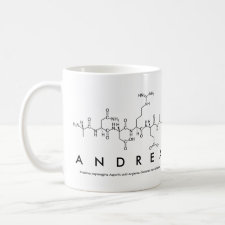
Authors: Biffis A, Graham NB, Siedlaczek G, Stalberg S, Wulff G
Article Title: The synthesis, characterization and molecular recognition properties of imprinted microgels.
Publication date: 2001
Journal: Macromolecular Chemistry And Physics
Volume: 202
Issue: (1)
Page numbers: 163-171.
DOI: 10.1002/1521-3935(20010101)202:1<163::AID-MACP163>3.0.CO;2-M
Abstract: Molecular imprinting, an established technique for the synthesis of insoluble crosslinked polymers with specific cavities for selective molecular recognition and catalysis, has been applied to highly crosslinked polymer nanoparticles (microgels) able to build stable solutions in appropriate solvents. Imprinted microgels with a nominal crosslinking degree above 50 wt.-% could be prepared by solution polymerization in high dilution. They were characterized by GPC, viscometry and membrane osmometry, and were found to be highly crosslinked macromolecules with a molecular weight comparable to the one of proteins. Molecular recognition experiments clearly pointed out the presence of functionalized cavities within the microgels that were able to recognize and to selectively bind sugar molecules. The experiment can be carried out in homogeneous solution, after which the microgels are conveniently separated by ultracentrifugation. Although the obtained selectivities are still low compared to the results achieved with insoluble crosslinked polymers, the success of this approach represents an important step towards the development of what might be properly described as "artificial enzymes"



Join the Society for Molecular Imprinting

New items RSS feed
Sign-up for e-mail updates:
Choose between receiving an occasional newsletter or more frequent e-mail alerts.
Click here to go to the sign-up page.
Is your name elemental or peptidic? Enter your name and find out by clicking either of the buttons below!
Other products you may like:
 MIPdatabase
MIPdatabase









